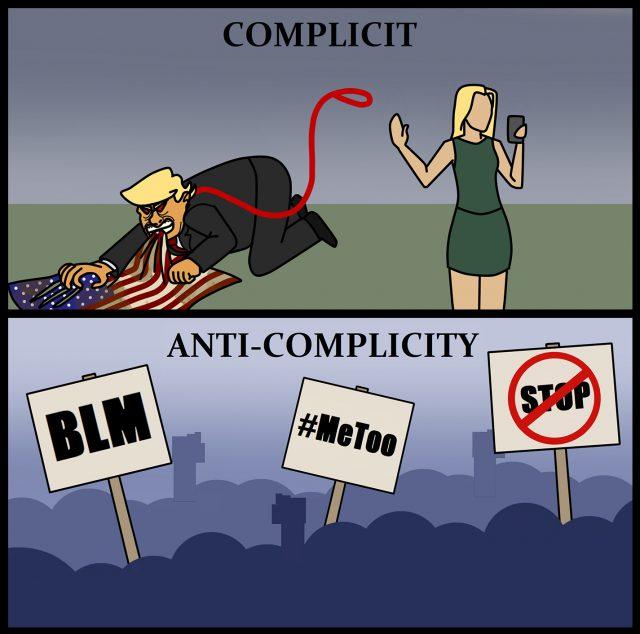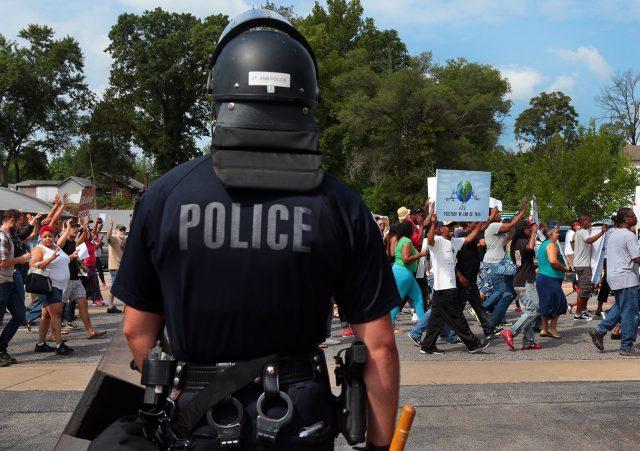Dictionary.com recently announced its 2017 Word of the Year, and it couldn’t be more fitting.
Complicit was the chosen word. And complicity occurred in multiple aspects of society this year from politics to pop culture.
The word is defined as “choosing to be involved in an illegal or questionable act, especially with others; having partnership or involvement in wrongdoing.”
Complicit saw its initial spike in searches on March 12, the day after Saturday Night Live aired a satirical ad featuring Scarlett Johansson as Ivanka Trump selling a perfume named Complicit. The ad marketed the scent as “The fragrance for the woman who could stop all this but won’t.”
The Word of the Year saw its largest spike in searches April 5, in response to something else involving Ivanka Trump, except it was the real Ivanka this time who attempted to redefine the word in an interview with Gayle King.
In the interview, Ivanka was asked about the accusations that she and her husband, Jared Kushner, are complicit with the actions of her father, to which she responded, “If being complicit is wanting to be a force for good and to make a positive impact, then I’m complicit.”
But being complicit isn’t good or positive. In fact, being complicit is undoubtedly negative as it means that a person is involved with someone or something that is wrong.
For the website, the Word of the Year is a symbol of the most meaningful events and looked-up trends throughout the year. So the word complicit was the perfect choice for 2017, but not because of the increase in searches or because people were complicit.
It’s perfect because people stopped being complicit in 2017 and spent the year fighting injustice and inequality. It seems particularly fitting with all of the sexual assault victims coming forward and the number of protests seen around the world demanding change.
According to the website, the word was partially chosen because of people who refused complicity in the face of oppression and corruption this year. From the hours people spent calling legislators to block bills to NFL quarterback Colin Kaepernick’s 2016 protest against systemic racial injustices gaining more traction, from the downfall of powerful sexual predators to the high-profile resignations from the Trump administration.
Perhaps the most memorable was Arizona Sen. Jeff Flake, who when announcing his retirement said, “I have children and grandchildren to answer to. And so, Mr. President, I will not be complicit,” and urged fellow Republicans to speak out because “silence can equal complicity.”
Another reason the word fits is because, as these events unfolded, people were forced to examine their own behavior and ask themselves if they, too, had been complicit because of their inaction and silence.
However, silence doesn’t always equal complicity. Society must keep in mind that those who have been negatively affected by assault, violence or social injustices are not obligated to share their stories with anyone, ever.
As 2017 draws to a close, may Dictionary.com’s Word of the Year continue to remain relevant in 2018 by reminding everyone that inaction is an action and that silent acceptance of wrongdoing is how the world got this way.
Moving forward, may people continue to stand up and speak out against injustice of all kinds.
And may we keep in mind that if we let injustice continue to become the norm, then we will all be complicit.
































